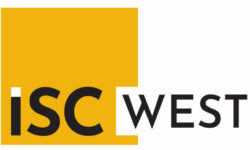Coronavirus Effect: These States Have the Most Impacted Small Businesses
A new study conducted by WalletHub ranks every state by how badly its small businesses have been affected by the COVID-19 crisis.

WASHINGTON — It’s no secret that the coronavirus is putting a serious strain on small businesses across the country. In fact, 35% of small business owners say their business can only survive for less than three months in current conditions.
Personal-finance website WalletHub just released a report that determines which states have the most affected small businesses due to Coronavirus.
WalletHub compared the 50 states and the District of Columbia across three key dimensions, “Impact & Access to Resources,” “Small-Business Financial Conditions” and “Business Environment & Workforce Support.”
It then evaluated those dimensions across 12 key metrics, with a data set that ranges from the share of small businesses operating in high-risk industries to small-business credit conditions and the state’s small-business friendliness.
Here are the top five states with the most and least small businesses affected by the coronavirus.
Top 5 States With the Most Small Businesses Affected by Coronavirus
- Hawaii
- Nevada
- South Dakota
- Mississippi
- South Carolina
Top 5 States With the Least Small Businesses Affected by Coronavirus
- District of Columbia
- Massachusetts
- Pennsylvania
- Ohio
- Wisconsin
According to the report, Hawaii is the state with the most small businesses affected by coronavirus. This is due to the state having the highest share of small businesses operating in high-risk industries, as well as being in the top five for lowest business vitality. You can view the full rankings below.
What Can Small Businesses Do?
At the end of March, the $2 trillion Coronavirus Aid, Relief, and Economic Security (CARES) Act was signed into law, setting aside hundreds of billions of dollars in available funds specifically for small businesses to obtain loans from the federal government.
“One big way that business owners can take advantage of the stimulus is to apply for the Paycheck Protection Program, which allows businesses with 500 or fewer employees to take out loans that will help them keep employees on the payroll or even hire more. The best part is that up to 100% of these loans may be forgiven,” says Jill Gonzalez, WalletHub analyst. “However, businesses should be proactive, as loans are offered on a first come, first served basis. In addition, it’s important to make sure that your business qualifies, as there are different stipulations from different banks.”
Small businesses should also turn to industry-specific groups and associations. For example, the Security Industry Association has put together state and local guides for COVID-19 programs, while the NSCA developed a business continuity landing page for integrators.
Click here to view SSI‘s continuing coronavirus coverage, which includes the latest news, products and business tips regarding the pandemic.
States With the Most Affected Small Businesses Due to COVID-19
If you enjoyed this article and want to receive more valuable industry content like this, click here to sign up for our FREE digital newsletters!

Security Is Our Business, Too
For professionals who recommend, buy and install all types of electronic security equipment, a free subscription to Commercial Integrator + Security Sales & Integration is like having a consultant on call. You’ll find an ideal balance of technology and business coverage, with installation tips and techniques for products and updates on how to add to your bottom line.
A FREE subscription to the top resource for security and integration industry will prove to be invaluable.














